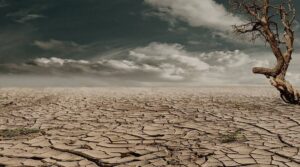by chandiniann | Mar 6, 2024 | Interesting Reads

The two piece puzzle represents cooperation, the puzzle consists of the colors red and blue. A man and a woman become partners for a business. There are two people using their powers. Gender equality business concept. Flat vector illustration isolated on white background.
International Women’s Day, once celebrated with fervor and genuine enthusiasm, now faces criticism. It is seen as just another token gesture rather than a true celebration of women’s rights and achievements. Today, the essence of Women’s Day is overshadowed by commercialism and superficial gestures, leaving many to question its significance and authenticity.
The commercialization of International Women’s Day has led to its trivialization. Marketing campaigns and product sales take precedence over addressing the core issues faced by women worldwide. Instead of meaningful discussions and actions, the day has become synonymous with shallow consumerism.
Furthermore, the persistent gender disparities and systemic injustices experienced by women highlight the irony of dedicating just one day to their recognition. Wage gaps, glass ceilings, and gender-based violence continue to plague women, underscoring the inadequacy of a single day of celebration in addressing these deeply rooted problems.
However, amidst the disillusionment, there is an opportunity for reflection and renewal. It is imperative that we prioritize ongoing action and advocacy for gender equality, not just on Women’s Day, but every day. This entails amplifying women’s voices, implementing gender-sensitive policies, and striving for genuine equality in all aspects of life.
Moreover, it is crucial to also recognize and address the challenges faced by men as well, including misandry, paternal discrimination, and masculinity stigma. Additionally, it’s crucial to acknowledge and support individuals who don’t strictly identify as men or women. These individuals may encounter challenges like lack of legal recognition and social stigma. Thus further elevating the importance of inclusivity and understanding for all gender identities. By fostering meaningful discussions and advocating for real change, we can transform Women’s Day into a platform that promotes genuine gender equality. This includes acknowledging the contributions and struggles of individuals of all genders worldwide.
Let us reclaim the true essence of Women’s Day and strive together towards a future where every day serves as a reminder of the rights and achievements of all genders. Together, let us #RedefineWomensDay and strive for a more inclusive and equitable world.

Image Courtesy: Bioneers
by chandiniann | Mar 4, 2024 | Interesting Reads

Image Courtesy: Indian Express
Amid our bustling lives, the daily grind, and the pursuit of our individual goals, there’s a silent catastrophe brewing, one that’s inching closer to a point of no return. The climate crisis and water scarcity are not distant dystopian fantasies; they are stark realities staring us right in the face. Yet, despite the urgency of the situation, we continue to turn a blind eye, going about our lives as if the planet’s impending demise is someone else’s problem.
Let’s address the elephant in the room: Why are we blatantly ignoring the climate crisis and wasting water?
Complacency in the Face of Crisis
First and foremost, it’s easy to fall into a state of complacency when the effects of climate change seem distant or abstract. We see images of melting ice caps or wildfires ravaging distant lands, and we convince ourselves that it’s not our immediate concern. But make no mistake – the impacts of climate change are already being felt, from extreme weather events to disruptions in food and water supplies. By ignoring these warning signs, we’re essentially playing a dangerous game of Russian roulette with the planet’s future.
.
The Harrowing Reality of Water Scarcity
Picture a world where the gentle trickle of a stream is but a distant memory, replaced by the haunting echo of barren riverbeds and cracked earth. This is the stark landscape of water scarcity, a chilling tableau unfolding in real-time across the globe.
As we mindlessly indulge in our daily routines, oblivious to the impending crisis, the very essence of life slips through our fingers. Our insatiable thirst for convenience and comfort drives us to squander water with reckless abandon, heedless of the dire consequences.
Each drop wasted – through excessive consumption, each pollutant dumped into our once-pristine waterways, each callous and selfish use of this resource, and each inefficient irrigation practice pushes us further into the abyss of scarcity. Yet, we remain ensnared in our apathy, cocooned in the false security of abundance.
But make no mistake – the specter of water scarcity looms large, casting a chilling shadow over our future. It’s a nightmare scenario, a waking horror that demands our immediate attention and action.
In this dystopian reality, access to clean, potable water becomes a luxury afforded only to the privileged few, while the rest are left to wither in the arid wasteland of scarcity. It’s a chilling prospect, a glimpse into a world devoid of hope and sustenance.
But there is still time to avert this impending catastrophe, to rewrite the script of our collective fate. We must awaken from our slumber of complacency, shake off the shackles of indifference, and confront the terrifying truth of water scarcity head-on.
The Power of Individual Action
It’s easy to feel overwhelmed by the magnitude of the climate crisis, to convince ourselves that our actions won’t make a difference in the grand scheme of things. But the truth is, every drop counts. Whether it’s reducing our carbon footprint, conserving water, or advocating for environmental policies, each one of us has the power to effect change, however small it may seem. It’s time to stop waiting for someone else to save the planet and start taking responsibility for our actions.
In conclusion, the climate crisis and water scarcity are not distant threats looming on the horizon – they are urgent challenges that demand immediate attention and action. It’s time to shake off our apathy, confront the harsh realities of our changing climate, and work together to build a more sustainable and resilient future for all. The time for action is now. The question is, will we rise to the challenge, or will we continue to ignore the warning signs until it’s too late? The choice, TRULY, is ours!

Image Courtesy: Sustainable Travel International




